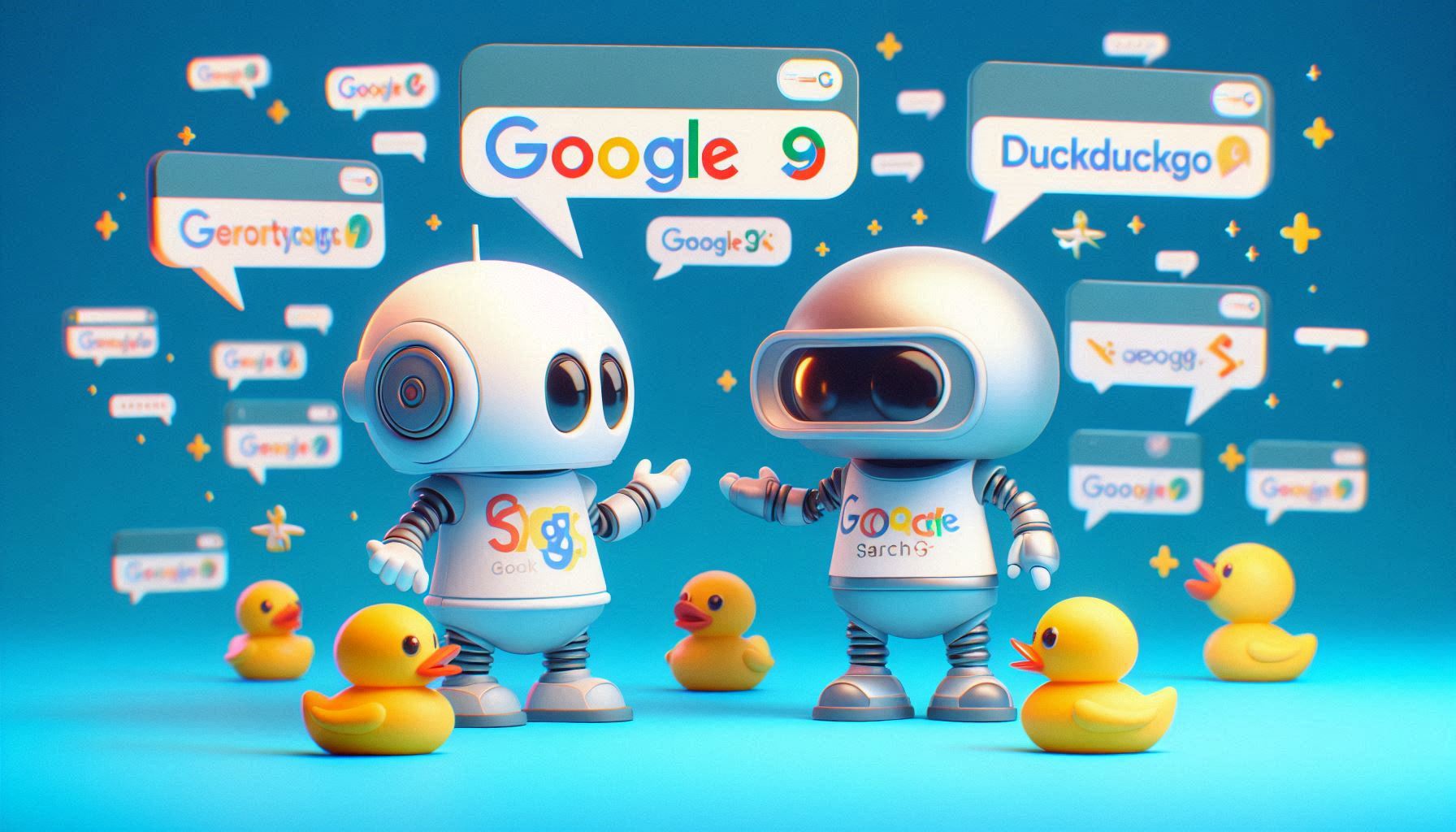Choosing the best search engine comes down to personal preferences, specifically privacy needs, search speed, and the type of results you’re looking for. Google has long been the industry giant, but DuckDuckGo has gained popularity due to its privacy-focused approach. This article compares the two search engines, examining features, privacy policies, and usability to help you determine which one suits your needs best.
The Basics: Google and DuckDuckGo
Google is the most widely used search engine globally, known for its comprehensive search algorithms, AI-driven results, and seamless integration with other Google services like Gmail, Google Maps, and YouTube.
DuckDuckGo, on the other hand, markets itself as a privacy-first search engine. It doesn’t track user data, collect personal information, or follow your search habits, making it ideal for users concerned about online privacy.
Key Features of Google and DuckDuckGo
1. Search Algorithm and Result Quality
- Google uses advanced algorithms, artificial intelligence, and machine learning to deliver highly personalized search results based on users’ history, location, and previous searches. The quality and relevancy of Google’s search results are generally considered top-notch due to the vast data it processes.
- DuckDuckGo offers straightforward, less personalized results that are not influenced by user data. While its search quality is still high, it may lack the tailored feel of Google’s results, but that’s a plus for users who value objective, unbiased results.
2. Privacy Policies and User Tracking
- Google’s Privacy Approach: Google tracks user data to optimize and personalize results. While Google has improved its privacy options, it still collects substantial user information. Google’s services are interconnected, meaning data from Gmail, Maps, and Chrome can all contribute to the personalized experience.
- DuckDuckGo’s Privacy Approach: DuckDuckGo doesn’t track, store, or share any personal data. It doesn’t store IP addresses or use cookies to gather user information, and each search is essentially treated as an independent event without a history trail. For users who want anonymity, DuckDuckGo is the clear winner.
Interface and User Experience
- Google’s Interface: Google’s interface is clean, familiar, and user-friendly. It offers suggestions, autofill, and predictive search, making it fast and easy to find what you’re looking for. Google also has a variety of tools like weather updates, maps, shopping, and news integrated directly into the search.
- DuckDuckGo’s Interface: DuckDuckGo’s interface is simpler but still modern and accessible. Its visual style is similar to Google’s but lacks some of the extra tools and features. However, it does offer “Instant Answers” for quick responses without ads and distractions.
Additional Features and Tools
- Google Tools: With Google, users get integrated tools like Google Maps, Google Flights, and Google Images that enhance the search experience. Features like Google Translate and Knowledge Panels provide quick answers and helpful context for various topics. Google’s voice search and search filters also add to its versatility.
- DuckDuckGo Tools: DuckDuckGo includes “Bangs,” a unique tool that allows you to search directly within other websites (e.g., typing “!w” takes you to Wikipedia). While it lacks many of Google’s additional tools, it’s an efficient search engine for quick, straightforward queries without tracking.
Advertising and Sponsored Results
- Google Ads: Google’s search results often include several ads at the top and throughout the search page. These ads are tailored based on user behavior and previous searches, which can be beneficial but may feel intrusive to users concerned with privacy.
- DuckDuckGo Ads: DuckDuckGo includes a minimal number of ads based on the specific keywords in your search rather than personal data. While this limits the level of ad relevance compared to Google, it provides a cleaner, less invasive experience.
Advantages and Disadvantages
Google’s Pros and Cons
Pros:
- Advanced algorithms for accurate and relevant search results
- Comprehensive tools and services
- Personalized search experience
- Multiple language and accessibility options
Cons:
- Tracks user data extensively
- Ads can be intrusive
- Limited privacy options for highly privacy-conscious users
DuckDuckGo’s Pros and Cons
Pros:
- Does not track or store personal information
- Straightforward search results without bias
- Simple and user-friendly interface
- Minimal advertising that’s not personalized
Cons:
- Lacks Google’s advanced tools and services
- May feel less relevant without personalized results
- Limited ecosystem compared to Google’s suite of services
Who Should Use Google?
Google is ideal for users who appreciate highly tailored results, utilize tools like Google Maps, and don’t mind sharing data for a more integrated online experience. It’s also great for businesses and professionals who rely on productivity tools linked across platforms, like Gmail and Google Drive.
Who Should Use DuckDuckGo?
DuckDuckGo is best for privacy-focused users who want a clean, ad-light search experience without personalized tracking. It’s a fantastic option for those who value data security and prefer a neutral, objective search engine.
Conclusion
Ultimately, whether Google or DuckDuckGo is the “better” search engine depends on what you prioritize. Google offers a robust, personalized experience with a suite of tools, while DuckDuckGo stands out for privacy and simplicity. For privacy-conscious individuals, DuckDuckGo is the go-to choice, while those seeking tailored, data-driven search results may prefer Google’s capabilities. By understanding the strengths and limitations of each, you can choose the search engine that best fits your needs.



